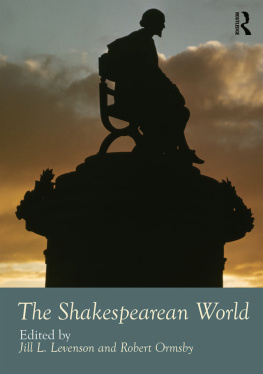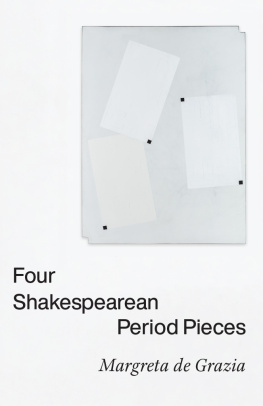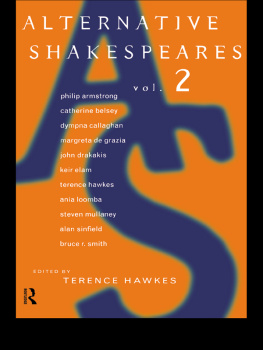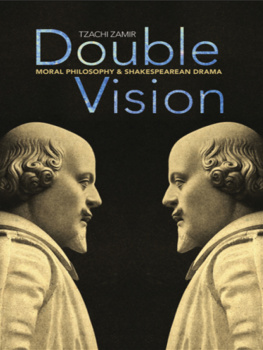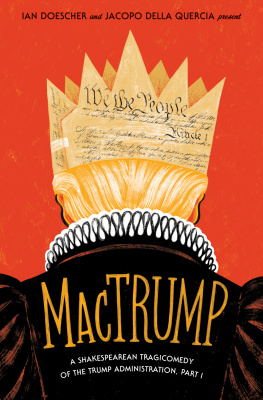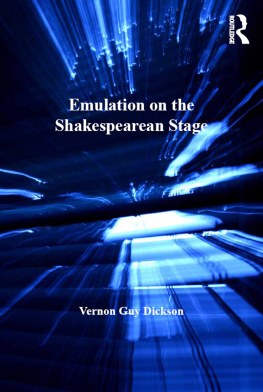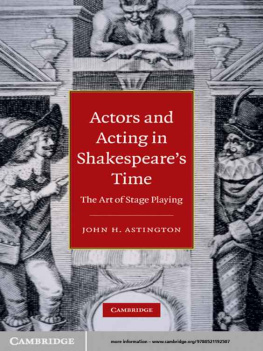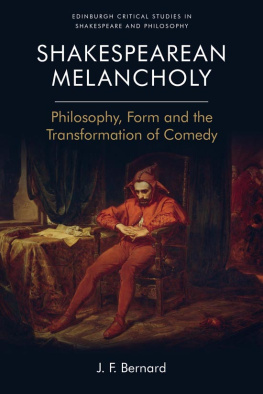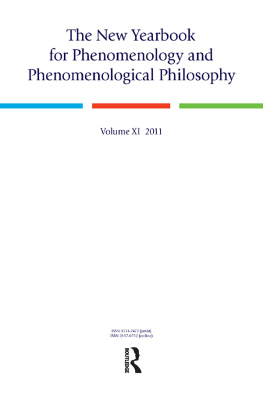THE SHAKESPEAREAN INTERNATIONAL YEARBOOK
2: WHERE ARE WE NOW IN SHAKESPEAREAN STUDIES?
EDITORIAL BOARD
Michael J.B. Allen
UCLA, Editor,
Renaissance Quarterly
Anne Barton
Cambridge University
Philip Edwards
Liverpool University
Barbara Everett
Somerville College,
Oxford University
Angus Fletcher
Graduate School,
CUNY
Werner Habicht
Wrzburg,
Shakespeare Jahrbuch
G.K. Hunter
Yale University
S.F. Johnson
Columbia University
Emrys Jones
Goldsmiths Professor,
Oxford University
Donald R. Kelley
Rutgers University, Editor,
Journal of the History of Ideas
Paul Oskar Kristeller
Columbia University
Barbara A. Mowat
Folger Shakespeare Library
Kenneth Muir
Liverpool University
Gail Kern Paster
Folger Shakespeare Library,
Editor,
Shakespeare Quarterly
John M. Steadman
Huntingdon Library
Claus Uhlig
Philipps-Universitt, Marburg
Eugene M. Waith
Yale University
Stanley Wells
Editor, Shakespeare Survey,
Shakespeare Institute,
Stratford-upon-Avon
The Shakespearean
International Yearbook
2: Where are we now in Shakespearean studies?
Edited by
W.R. Elton and John M. Mucciolo
First published 2002 by Ashgate Publishing
Reissued 2018 by Routledge
2 Park Square, Milton Park, Abingdon, Oxon OX14 4RN
711 Third Avenue, New York, NY 10017, USA
Routledge is an imprint of the Taylor & Francis Group, an informa business
Copyright The editors and contributors, 2002
The editors and contributors have asserted their right under the Copyright, Designs and Patents Act, 1988, to be identified as the authors of this work.
All rights reserved. No part of this book may be reprinted or reproduced or utilised in any form or by any electronic, mechanical, or other means, now known or hereafter invented, including photocopying and recording, or in any information storage or retrieval system, without permission in writing from the publishers.
Notice:
Product or corporate names may be trademarks or registered trademarks, and are used only for identification and explanation without intent to infringe.
Publishers Note
The publisher has gone to great lengths to ensure the quality of this reprint but points out that some imperfections in the original copies may be apparent.
Disclaimer
The publisher has made every effort to trace copyright holders and welcomes correspondence from those they have been unable to contact.
ISBN 13: 978-1-138-72993-3 (hbk)
ISBN 13: 978-1-315-18839-3 (ebk)
ISSN 1465-5098
Typeset in Times by Manton Typesetters, Louth, Lincolnshire, UK.
Contents
Angus Fletcher
Gordon Braden
Joseph Pequigney
Richard Madelaine
Lee Bliss
John G. Demaray
Ian Lancashire
Ros King
Richard Proudfoot
Richard Knowles
T.H Howard-Hill
Alan B. Farmer
John Guy
Robert Weimann
Peter M. Daly
B.J. Sokol and Mary Sokol
Mario DiGangi
William M. Hamlin
John Mulryan
David Daniell
Anthony Grafton
Michael J.B. Allen
This Volume 2 is dedicated to the late W.R. Elton who founded The Shakespearean International Yearbook.
The editors wish to acknowledge the assistance of the following: Ashgate Publishing Company, especially Erika Gaffney and Rachel Lynch; Angus Fletcher and Graham Bradshaw; S.F. Johnson and John M. Steadman; Provost William P. Kelly and Executive Officer Joan Richardson of the Graduate School, City University of New York; and Millie, Ewell, and David Boyd.
Dedicated to the Memory of Professor W.R. Elton, 15 August 192118 August 2000
This second volume of The Shakespearean International Yearbook is dedicated to Professor W.R. Elton, late Professor of Shakespearean Studies at the Graduate School and University Center of the City University of New York.
Professor Elton founded The Shakespearean International Yearbook to provide a conspectus of the present state of Shakespearean studies, from the most recent critical theories to evaluative bibliographical surveys of research in many fields.
To this end, the papers comprising this second volume were compiled and organized by W.R. Elton. They are divided into four topics: Criticism and Theory; Text, Textuality and Technology; Renaissance Ideas and Conventions; and, a special topic in honour of the Graduate Centers move to 365 Fifth Ave, New York Shakespeare and the City. A final section pays homage to the late Paul Oskar Kristeller.
Professor W.R. Elton dedicated his life to interpreting Shakespeares plays in the light of Renaissance ideas and conventions.
Dedicated to the memory of Professor W.R. Elton, 15 August 192118 August 2000
Angus Fletcher
What is theory, said jesting Pilate; and would not stay for an answer. Recalling Francis Bacon, we raise the question of scepticism and scientific truth, and we note that since the mid-1960s theory has come to mean almost any kind of reticulated interpretive jargon, as applied to literature, politics or society. I choose this moment of origin not from any precise or definitive sense that here begins a contagion of theory, but for the anecdotal reason that on 21 October 1966 Jacques Derrida made a significant gesture when he delivered his lecture (in French) Structure, Sign, and Play in the Discourse of the Human Sciences.1 This was just one, but among the most remarkable, of several lectures delivered at Johns Hopkins for the celebrated International Colloquium on Critical Languages and the Sciences of Man. In his inimitable way Derrida proposed the decentring and destabilizing of all hierarchic systems of discourse, thereby making it difficult for scholars to avoid a profound interpretive scepticism whether confronting texts or historical events.
The aim of the following chapter will be to observe a dichotomy in the advanced academic study of Shakespeare and other authors the split between the text and the poem. There is, we know, the inscribed, scribally or mechanically reproduced writing of the literary work. But before this stage there is the literary artefact as it comes into being through an imaginative making, which the ancients called poesis. While the former textual notion has developed in recent years to unprecedented levels of complexity, the latter poesis has virtually disappeared from sight. The poem, as problematic concept, has in effect vanished, a victim of the rise of what Umberto Eco has called contemporary textual gnosticism.2 My aim is to propose that we think anew about what I shall consistently be calling the poem, no matter how elusive that term and its concept may seem. To enable a new life for poem and poetics (ideas that Sidney, for example, would have understood) we need to think about their opposite, one effect of the recent vogue of theorizing, a vogue which at times even includes a fashion of coming out against theory.


